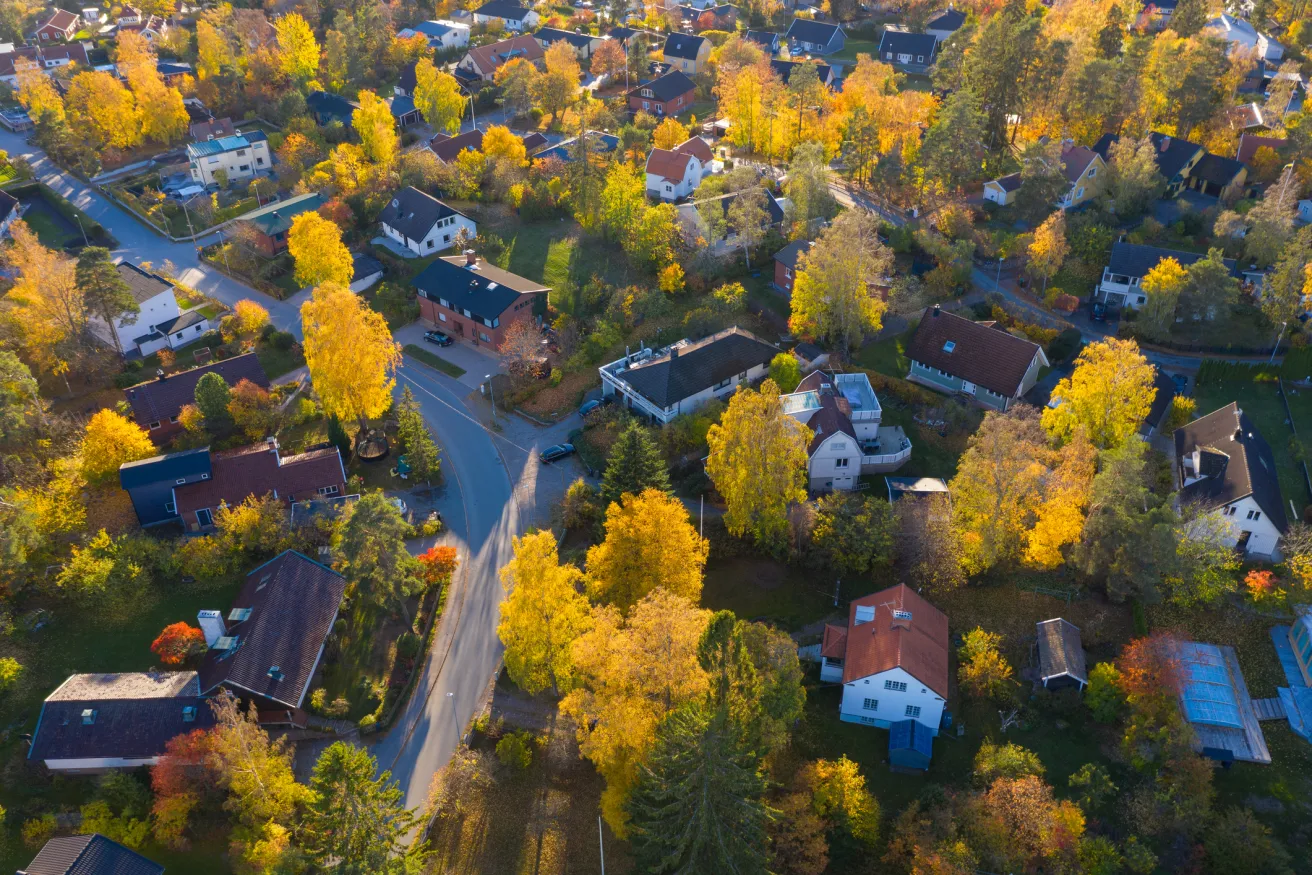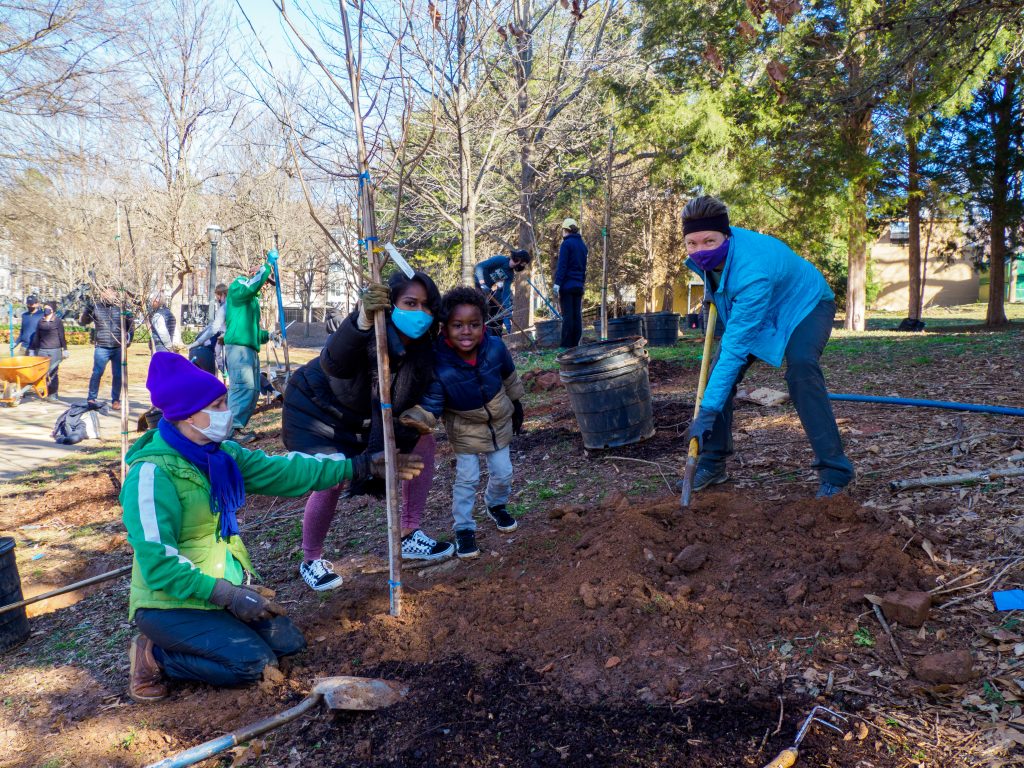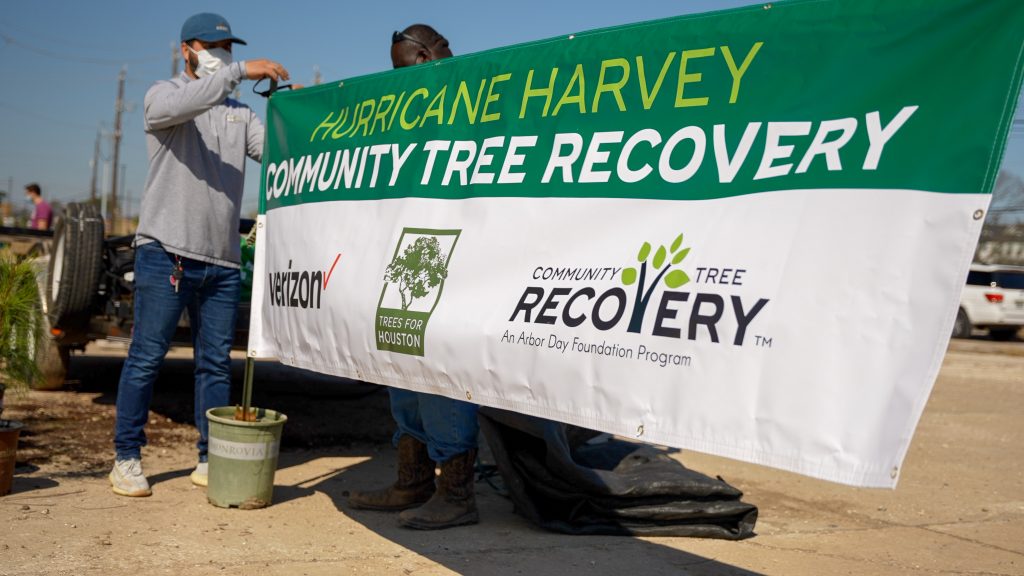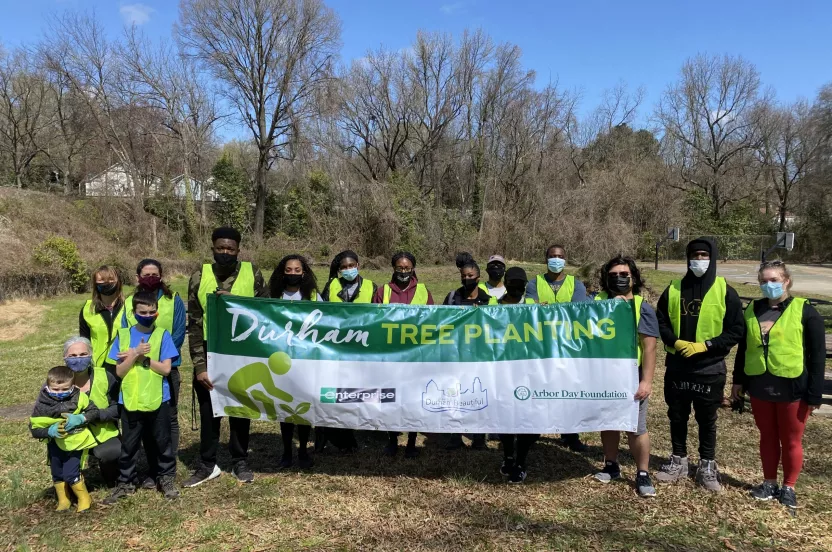Now live: The 2025 Canopy Report. Learn how Americans see trees. GET THE REPORT
Travelers will tell you – every community has a different atmosphere. Through the different landscapes, buildings, and faces, our lives are molded by the environments in which we surround ourselves. That is why we believe that trees have the ability to make a positive impact on the people of each and every community. Trees provide a strong defense against storm damage for residents, reduce temperatures in severely heated areas, and can nourish a community by providing fresh fruit, nuts, and other nutritional foods. However, each area’s unique needs dictate a unique solution.
Due to a decline in urban canopies, communities with low-income housing tend to be the most affected by floods, urban heat islands, and generally have limited access to essential goods, such as healthy food options. These problems are the direct cause of an even greater concern related to environmental and social inequities which have profound impacts on the vitality of these neighborhoods. At the Arbor Day Foundation, we see this as an extraordinary opportunity to work side-by-side with local community members and organizations to work towards a common goal and to help make our communities better for all.
Local planting organizations like Million Trees Miami, Trees Atlanta, and Trees For Houston have been an inspiration for us to work with, motivating us to meet residents where they are in order to plant, nurture, and celebrate trees. These teams have done an amazing job in continuing to educate the public on the importance of urban community forestry, and each have their own unique stories in providing for their own unique areas they live in.
Million Trees Miami
The citizens of Miami-Dade County, Florida understand that collaboration is a key element for storm preparedness and disaster relief among their communities. Additionally, the constant, stifling heat the area experiences year-round has led residents and organizations to think outside the box in solving these issues together.
“We've just found so many ways in which trees are creative solutions to problems and we've had a really fun time figuring that out,” says Gabriela Lopez, Community Image Manager of Miami-Dade County’s Neat Streets board, which leads Million Trees Miami. When striving to unite community members in their efforts, Lopez believes that educating individuals is the most effective method in bringing positive change. “Because community engagement for us is not just doing the work. When we get those opportunities, like giveaways and plantings, to teach someone how to plant their tree or tell them the right place to plant it or have them really think about the material they're using, then that's a meaningful conversation with us—that’s something they'll remember, and that's something they can pass on.”
One of their most recently established projects—Growing Roots for Environmentally Equitable Neighborhoods (GREEN) Miami-Dade County—aims to teach sustainable gardening practices and inspire a healthier community in lower-income neighborhoods. By installing garden beds and planting fruit trees in areas where healthier food options are not as accessible, the program strives to reduce the nutritional disparities that are commonly found. “This is the type of work we really want to be focusing on,” says Lopez, “and I think it's really resonated. I think a lot of people are having those conversations now.”
Trees Atlanta
“Our goal is to truly make sure trees become a meaningful part of a community,” says Judy Yi, Director of Outreach and Marketing for Trees Atlanta. “It is one of our core beliefs—which inspires our mission—that trees play a critical role in the health and well-being of the community.”
The flourishing urban canopies that Trees Atlanta maintains can be viewed for their vibrant landscapes as well as a symbol of commitment to growing a better future for the community. One of their hallmark educational programs, Youth Tree Team, provides summer employment opportunities for local high schoolers who are interested in “green” collar career opportunities. The students help out with tree planting and environmental maintenance projects all over the city, and also get to attend career-building workshops that provide job application and interview training, resume writing, personal financial literacy skills, and networking with other green collar professionals.
Additionally, Trees Atlanta has worked hard to address environmental issues stemming from civil inequalities and celebrates those who strive to make the world a better place for all. This February, 300 trees were planted in Atlanta’s Freedom Park in honor of late Congressman and Civil Rights champion John Lewis. In partnership with the Freedom Park Conservancy and National Center for Civil and Human Rights, the “Flowering Forest” honors one individual’s life of dedicated public service to others in the hopes of inspiring future leaders to do the same. “It's a great example of community collaboration at every stage of the project,” says Yi. “We believe that by improving access, quantity, and quality of urban trees, we can help address environmental, community health, and other social challenges for all people within our communities.”
Trees For Houston
When serving such a large area of individuals and neighborhoods, our planting partners understand the importance of putting in the work for areas often overlooked. “We primarily focus on low-income neighborhoods; that's always our number one priority,” says Randi Koenig, Development Director at Trees For Houston. “We want to plant trees for the school that has no trees. We want to plant trees for the neighborhoods that aren’t able to go out and purchase or have their HOA provide trees.”
One important aspect of making an impact in a community is knowing that you don’t have to do it alone. It takes a tremendous amount of teamwork to build thriving neighborhoods, which is why Trees For Houston provides free assistance for many local nonprofits to meet their needs. “We don't want places like homeless shelters to have to purchase trees for their new facility when they're trying to also feed and house more people,” says Koenig. This became especially true in the aftermath of Hurricane Harvey, where storm damage took a toll on the entire city. “We're kind of the primary resource now for a lot of the parks, nonprofits, and any other kind of community group that needs trees.”
Trees For Houston also aims to make an impact by educating the community early on. Their Trees For Schools program aims to upgrade community canopies on school campuses while also providing educational opportunities in the classroom. “The school pays nothing and we maintain the trees for two years,” says Koenig. “We’ve done classroom presentations about why these trees are important in urban environments.” Koenig says classroom resources and presentation videos are now available online for virtual learning so that kids can feel more connected with their school’s environmental project. Just another example how individuals and organizations have adapted to provide stronger, healthier communities, even through times of uncertainty.
It has been an honor to work in partnership with individuals who are doing their part in these communities every single day and strive to see them grow.







